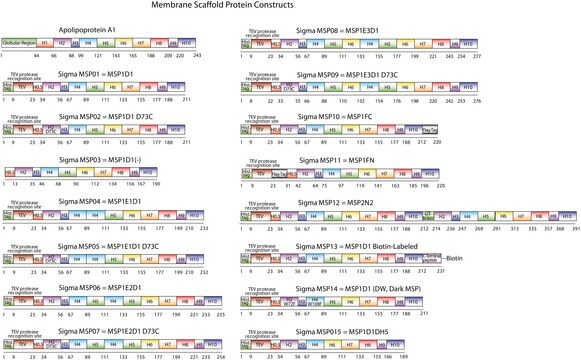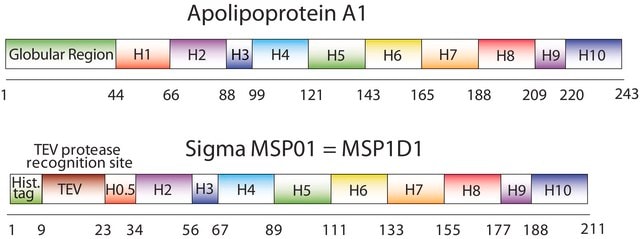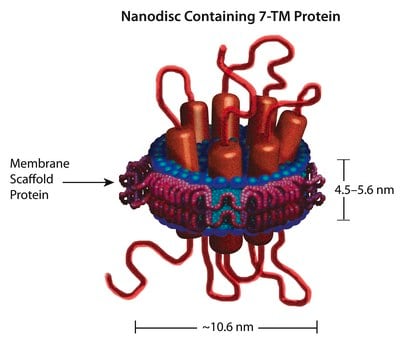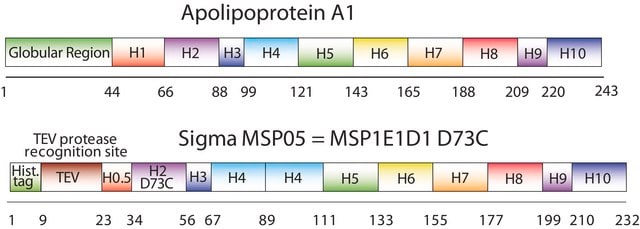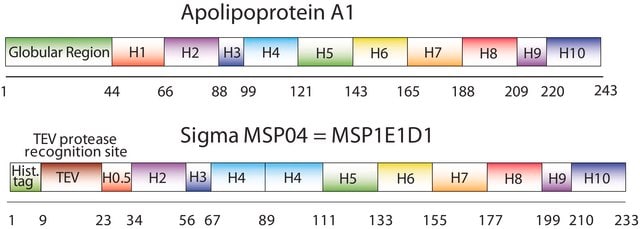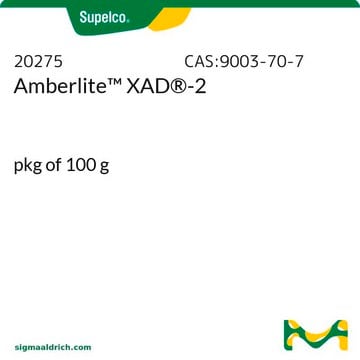MSP03
Membrane Scaffold Protein 1D1(-)
recombinant, expressed in E. coli, buffered aqueous solution
Sinónimos:
Membrane Scaffold Protein
About This Item
Productos recomendados
recombinante
expressed in E. coli
Análisis
≥90% (SDS-GE)
formulario
buffered aqueous solution
mol peso
22,043.9 Da
solubilidad
water: soluble
Condiciones de envío
ambient
temp. de almacenamiento
−20°C
Descripción general
Aplicación
Acciones bioquímicas o fisiológicas
Información legal
- 7,691,414 Membrane scaffold proteins
- 7,662,410 Membrane scaffold proteins and embedded membrane proteins
- 7,622,437 Tissue factor compositions and methods
- 7,592,008 Membrane scaffold proteins
- 7,575,763 Membrane scaffold proteins and tethered membrane proteins
- 7,083,958 Membrane scaffold proteins
- 7,048,949 Membrane scaffold proteins
Código de clase de almacenamiento
12 - Non Combustible Liquids
Clase de riesgo para el agua (WGK)
WGK 2
Punto de inflamabilidad (°F)
Not applicable
Punto de inflamabilidad (°C)
Not applicable
Certificados de análisis (COA)
Busque Certificados de análisis (COA) introduciendo el número de lote del producto. Los números de lote se encuentran en la etiqueta del producto después de las palabras «Lot» o «Batch»
¿Ya tiene este producto?
Encuentre la documentación para los productos que ha comprado recientemente en la Biblioteca de documentos.
Los clientes también vieron
Protocolos
Nanodisc technology aids membrane protein solubilization, overcoming associated challenges in diverse protein classes.
Nuestro equipo de científicos tiene experiencia en todas las áreas de investigación: Ciencias de la vida, Ciencia de los materiales, Síntesis química, Cromatografía, Analítica y muchas otras.
Póngase en contacto con el Servicio técnico